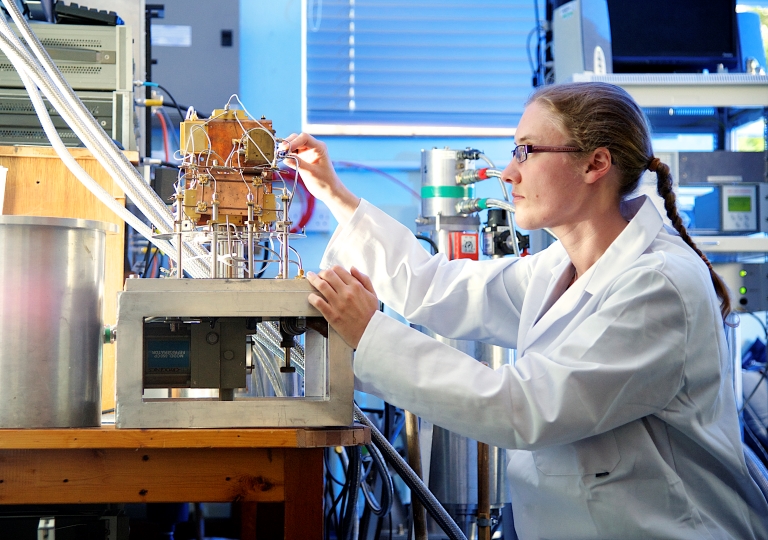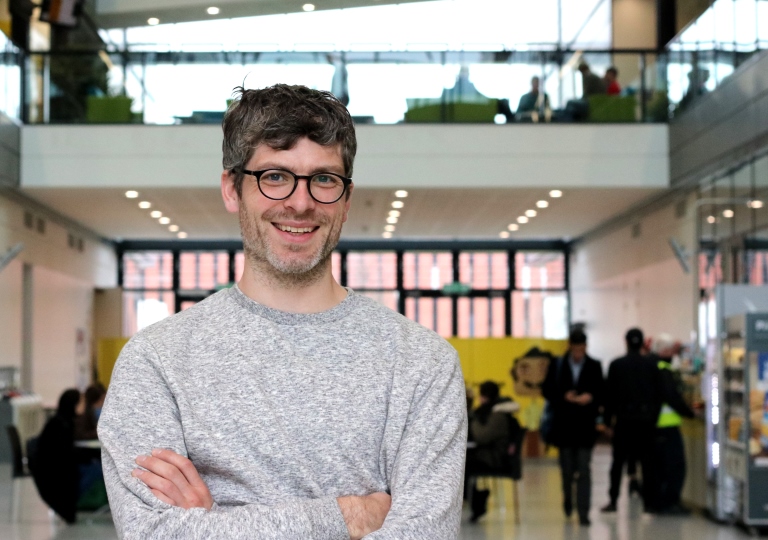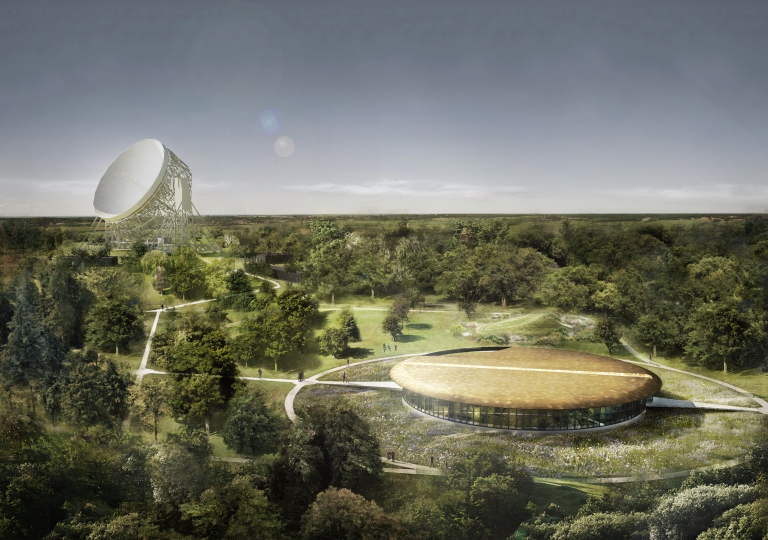What is it that makes us human? Is it our upright posture? Our opposable thumbs? Our sense of right and wrong? Or could it be our instinct to ask the simple question, ‘why’?
The thing that makes us human? Our instinct to ask the simple question, 'why'? Share on X At @OfficialUoM, we believe in exploring our natural curiosity, wherever it may take us Share on X #Science goes step by step and every man depends on the work of his predecessors. #Rutherford Share on X
For hundreds of years, humans have wondered what it is that separates us from animals, and in particular, mammals. After all, we’re made of the same flesh and bone, we’re all born, we live and we die. We experience the same pain and mental distress and have many of the same bodily functions. And yet, our ability to question the world around us, to pursue knowledge for its own sake, seems to make us uniquely human.
The mind is a powerful tool, with unparalleled potential. It was the human mind that learnt to control fire and invent the wheel. And it was the human mind that discovered many of things we take for granted today, like penicillin, the X-ray, electricity and gravity. But these discoveries didn’t snap into existence from nowhere. Each and every one began from a tiny seed: the seed of curiosity.

Having first split the atom in 1917, Nobel Laureate and Manchester academic Earnest Rutherford said: “It is not the nature of things for any one man to make a sudden, violent discovery; science goes step by step and every man depends on the work of his predecessors. When you hear of a sudden unexpected discovery – a bolt from the blue – you can always be sure that it has grown up by the influence of one man or another, and it is the mutual influence which makes the enormous possibility of scientific advance. Scientists are not dependent on the ideas of a single man, but on the combined wisdom of thousands of men, all thinking of the same problem and each doing his little bit to add to the great structure of knowledge which is gradually being erected.”
At The University of Manchester, we believe in the power of human curiosity to change the world. For many of our world-class researchers, the end objective might already be in sight: a treatment for cancer, a policy to reduce poverty, a new low carbon energy source. But equally important to us is the research that has no clear benefit other than expanding our knowledge.
Many areas, such as mathematics, physics and medical Egyptology could be the foundations for future discoveries that benefit society. But what about music, English or philosophy? We believe that knowledge, in all its forms, empowers and innovates. We want our students and academics to wander through knowledge, to explore their natural curiosity, wherever it may take them. To embrace the spirit of adventure, exploration and discovery. Because seeking knowledge for the sake of knowledge is what makes us unique, and knowledge doesn’t need to have a clear application to make it special.
The Langworthy legacy
Thanks to donations, we are committed to supporting discovery, but for us this is nothing new. In 1874, the liberal politician Edward Ryley Langworthy left £10,000 to the Trustees of Owens College in his Will, which later became the Victoria University of Manchester. His vision was to establish a Professorship in Experimental Physics, to be offered to someone who would be committed to new discovery. Within one generation this legacy had funded its first Nobel Laureate, with Ernest Rutherford winning the Nobel Prize for Chemistry in 1908. Since then, the Chair has been held by four further Nobel Laureates: Laurence Bragg, Patrick Blackett and most recently Andre Geim and Kostya Novoselovfor their isolation of the miracle material, graphene.
The Turing legacy
Pure mathematics can have unexpected applications, helping us to understand the world around us. Using his deep-rooted passion and aptitude for number theory, Alan Turing famously cracked the enigma code that helped save millions of lives during World War 2, and went on to develop the first programmable computer. And yet, subjects like pure mathematics don’t necessarily need to achieve anything other than to push back the boundaries of human knowledge.
Thanks to donor support, we are proud to have four Turing Fellows in Pure Mathematics at Manchester, including Dr Sean Prendiville: “I’m fascinated by unsolved problems. Particularly those that are easy to understand, but difficult to prove, like: Can every positive, even number be written as a sum of two or less primes? The question may seem abstract or obscure, but the tools that have been developed to try and solve it and others like it have proved useful in other areas of maths and sciences. It’s helped us understand and quantify otherwise ‘random’ behaviour. This kind of blue sky research can have benefits far into the future and solving these problems can give us answers to so many other questions. You never know where it will take you.”

Exploring the skies
What is dark matter made of? How big is space? Is time travel possible? And are we really alone in the universe? Science has explained all manner of things, and continues to challenge ideas that we take for granted. Until the early 1500s, it was believed that the planets, sun and stars circled the earth. During the 1980s and 90s, children were taught that Pluto was a planet (now a Kuiper Belt object), and in 2016, scientists discovered a planet orbiting the nearest star to the sun. Only time will tell what mysteries will be solved next.
At Manchester, we are fascinated by the great unknown, and at Jodrell Bank Discovery Centre, we want to share our passion for space with anyone and everyone. We want to inspire the next generation of young scientists to develop a love and passion for adventure and discovery. We want to instil in them the magic of curiosity, of asking questions about where we came from and who are. Already we work with thousands of school children every year, but we want to do more. Our vision is to build the First Light Pavilion at Jodrell Bank, a spectacular new space to celebrate the extraordinary journey of exploring our place in the universe.

We believe that discovery is special, paving the way for tomorrow’s discoveries. Some will unlock huge benefits for society, others will deepen our understanding of ourselves and the world around us. Whatever the result, we believe that the journey of discovery is what makes humanity special.

